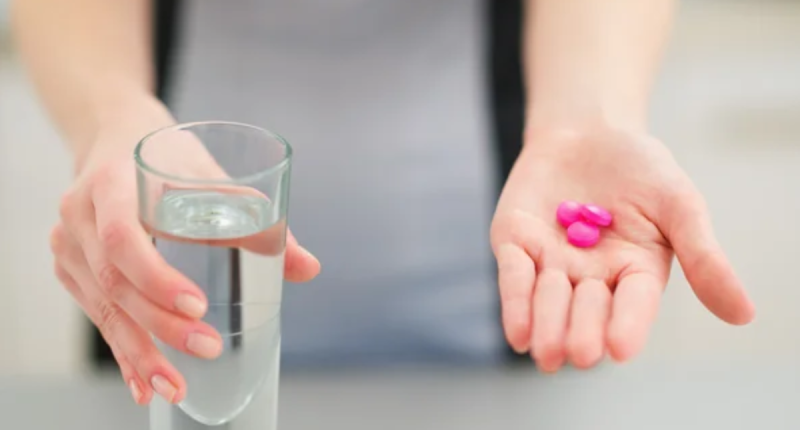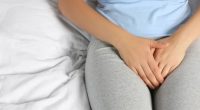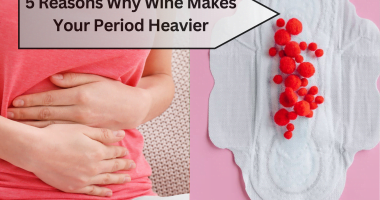Pregnancy after using morning-after pill is possible under these conditions explained in this article. The morning-after pill (MAP), also known as emergency contraception or plan B, is a safe and effective medication that can help prevent pregnancy after unprotected sex.
However, there are situations where pregnancy is still possible even after taking the pill. This happens as a result of various factors that can influence the effectiveness of the morning-after pill after its use. Now, here are conditions under which pregnancy after the morning-after pill happen.
1. You’re Ovulating
The morning-after pill works primarily by delaying ovulation, the process in which an egg is released from the ovary. By delaying ovulation, the pill disrupts the timing of the menstrual cycle, making it less likely for sperm to meet and fertilize an egg. Additionally, some types of morning-after pills may also thicken cervical mucus, making it harder for sperm to reach the egg. However, If you are already ovulating when you take the morning-after pill, its effectiveness is reduced. While it can still prevent pregnancy, the chances are lower compared to non-ovulatory periods [1]
2. Time of ingestion
What this simply means is that you took the pills too late. The sooner you take the pill after unprotected sex, the more effective it is. The effectiveness of the pill decreases significantly the longer you wait to take it. This is because its main mechanism of action is delaying ovulation, and the closer you are to ovulation at the time of taking the pill, the less likely it is to be successful. The general idea of the effectiveness of the morning-after pill based on timing:
- Taken within 24 hours: Up to 95% effective in preventing pregnancy for both types of MAP.
- Between 24 and 48 hours: Levonorgestrel MAP effectiveness drops to around 85%, while ellaOne remains around 98%.
- Between 48 and 72 hours: Levonorgestrel MAP effectiveness drops to around 58%, and ellaOne is still over 95% effective.
- Beyond 72 hours: Levonorgestrel MAP is not recommended, while ellaOne’s effectiveness decreases significantly but is still possible [2].
3. You threw up within 2 hours of taking the pill
The effectiveness of the morning-after pill depends on how much of the medication is absorbed by your body before you throw up. If you throw up within 2 hours, some of the medication might not have had enough time to be fully absorbed, potentially lowering its effectiveness in preventing pregnancy.
The type of morning-after pill also plays a role. Levonorgestrel-based pills like Plan B One-Step may be less effective if you throw up within 2 hours, while ulipristal acetate-based pills like ellaOne have a longer absorption window and may still be effective[3].
4. You had unprotected sex again
Having unprotected sex again after taking the pill puts you at risk of pregnancy, just like any other unprotected sex as the The morning-after pill only works for the specific cycle of unprotected sex it was taken for. Recall that the pill primarily delays ovulation, giving the egg and sperm less time to meet. Once ovulation has occurred or passed, the pill has no effect on future cycles[4].
5. You’re on medication
Antibiotics, Anticonvulsants, HIV/AIDS medications and herbal supplements, can interact with the morning-after pill and reduce its effectiveness. This happens because they can Increase the breakdown of the MAP in your body. This means less of the medication is absorbed, ultimately decreasing its effectiveness. Another reason is the that any of this medications can delay the absorption of the MAP: This gives the pill less time to act before ovulation, potentially lowering its chance of success[5].
6. You have higher body mass index (BMI)
Research suggests that the effectiveness of levonorgestrel-based MAPs like Plan B One-Step may be slightly lower in individuals with a higher BMI. However, the data is not conclusive and the decrease is estimated to be small. For example, studies suggest that while the effectiveness of Plan B One-Step is around 95% in individuals with a normal BMI, it could be around 85% in individuals with a BMI in the obese range [6].
The evidence is less clear regarding the impact of BMI on ulipristal acetate-based MAPs like ellaOne. Some studies suggest that it may be more effective than levonorgestrel-based MAPs for individuals with a higher BMI, although more research is needed.
What’s the safe contraceptive measure after 72 hours? If you’re not sure of the pill effectiveness after 72 hours, go for IUD. The most effective option after 72 hours is an emergency IUD (copper IUD). It can be inserted up to 5 days after unprotected sex and offers highly effective protection against pregnancy, even if ovulation has already occurred. Consult a healthcare professional immediately to discuss an emergency IUD insertion.
DON’T MISS: What Causes Irregular Periods, and When Should You Worry?
If the morning-after pill fails will it harm the baby?
The morning-after pill, if it fails to prevent pregnancy, will not harm the baby. The hormones in emergency contraception pills have been shown not to affect the fetus, and they do not end an established pregnancy. Therefore, if a woman takes the morning-after pill and later finds out she is pregnant, the pill will not have affected the fetus in any way.
How long does the morning after pill last in your system?
The morning-after pill, typically lasts in the body for a relatively short period. The specific duration can vary based on individual factors such as metabolism, age, body size, and physical activity. For example, a single 30mg dose of ulipristal acetate, a common ingredient in the morning-after pill, is estimated to be around 32 hours, with its concentration reduced by half within that time. However, it’s important to note that the pill is designed for emergency use after contraceptive failure or unprotected sex and is only effective for a single episode of intercourse. It is not intended for ongoing use as a regular form of contraception. For maximum effectiveness, emergency contraception should be started as soon as possible after unprotected intercourse, and within 120 hours. If more than three days have passed since unprotected sex, alternative options such as a copper or hormonal IUD may be considered. It’s always best to follow the specific instructions provided with the morning-after pill and to consult a healthcare provider for personalized advice.
Will the morning after pill work if I have already ovulated?
The morning-after pill, such as Plan B, works by delaying ovulation. If ovulation has already occurred, the pill may be less effective, as it primarily aims to prevent the release of an egg. However, it’s worth noting that sperm can survive in the body for up to 6 days, so if a woman is not sure whether she has ovulated, taking the morning-after pill may still be worthwhile. Nevertheless, the effectiveness of the morning-after pill is significantly reduced if ovulation has already taken place. In such cases, alternative options like the copper intrauterine device (IUD) may be more effective in preventing pregnancy. It’s important to consider the timing of ovulation and to seek medical advice for the most suitable emergency contraception based on individual circumstances.
ALSO READ: 5 Bad Menstrual Hygiene Habits That Are Causing You Infection
Tips
- Try to take the morning-after pill on an empty stomach or with a light snack. This can help increase absorption.
- Avoid lying down for at least 30 minutes after taking the pill. This can also help with absorption.
- Take a pregnancy test 3 weeks after unprotected sex to confirm whether or not the pill worked.
Morning-After Pill: Key Facts
| Fact | Explanation |
|---|---|
| Types: | Levonorgestrel-based (e.g., Plan B One-Step) and Ulipristal Acetate-based (e.g., ellaOne) |
| Mechanism of Action: | Primarily delays ovulation |
| Effectiveness: | Up to 95% effective (taken within 24 hours) |
| Effectiveness Reduced By: | Time since unprotected sex, Ovulation, Higher BMI (for levonorgestrel), Certain medications |
| Recommended Use: | Within 72 hours (3 days) of unprotected sex |
| Not a Regular Birth Control Method: | Only protects against the specific cycle it was taken for |
| Side Effects: | Nausea, vomiting, fatigue, breast tenderness, spotting, irregular periods |
| Not 100% Effective: | Pregnancy still possible even after taking it |
| Consult Healthcare Professional: | If you have questions, are on medications, took it late, threw up after taking it |









